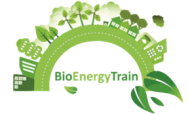Students contributed to solve the challenges faced by the Regional Government of Styria, the Styrian Chamber of Agriculture, the Austrian Biomass Association, and BioEnergie Mureck /SEBA Mureck, in the BET Student Camp hosted by EAS between 26 February and 2 March
How is it possible to stimulate the production and distribution of clean, renewable energy while fostering innovation and job growth? This was the underlying question of the 2018 Student Camp on the “Regional Challenges of Bio-Based Economy”, organized in the framework of the BioEnergyTrain (BET) project and hosted by Energy Agency Styria (EAS) between 26 February and 2 March. Stakeholders in the region of Styria, Austria, invited participants to develop ideas and build strategies to solve four challenges they are currently facing.
While confronted with complex issues, the 23 students, divided into four team, used their fresh outlook, different backgrounds and knowledge to their advantage. The result? Solutions outside the box.
In order to reach the solar energy potential of 4 PJ, as targeted by the Styrian Climate and Energy Strategy 2030, students used the map on the solar energy potential of the Styrian region, and calculated an investment of € 2.7 billion for the installation 2.15 GWP of photovoltaic capacity. As for the second challenge, on how to solve the bad reputation of biomass amongst the Styrian public, the group proposed a marketing makeover. They focussed their campaign on highlighting the importance of biomass in fostering local resources, job creation, research, and youth entrepreneurship. A multilayered approach characterized instead the solutions proposed for the third challenge. Students focussed on a multilayered approach based on the Installation of a heat recovery system in the district heating facility and the adoption of carbon capture and storage technologies to increase the CO2 savings of BioEnergie Mureck /SEBA Mureck. Furthermore, students suggested the implementation of vertical farming in the greenhouse to increase the productivity and stimulate job creation. Finally, in order recycle solid waste, such as kitchen, garden, and wood waste into new products, as requested by challenge four, participants suggested the adoption of the wormification method. Since the plastic contained in municipal waste cannot be recycled unless it is cleaned of organic waste, students suggested the use of worms as “cleaning agents” that would eat organic remains. At the same time, worms could also be sold to the food industry and or used to fed to animals, as food high in proteins.
The Student Camp 2018 gathered students from 12 different countries (Austria, Brazil, Germany, India, Macedonia, Mexico, Nepal, Netherlands, Pakistan, Poland, Portugal, and Turkey) and specialized in 8 different areas, ranging from biorefinery engineering, to technology and liberal arts and science, communication science, as well as industrial engineering and management. They worked under the supervisions of Professors Wolfgang Bauer, TU Graz, and Maarten Arentsen, University of Twente.
Read More:


